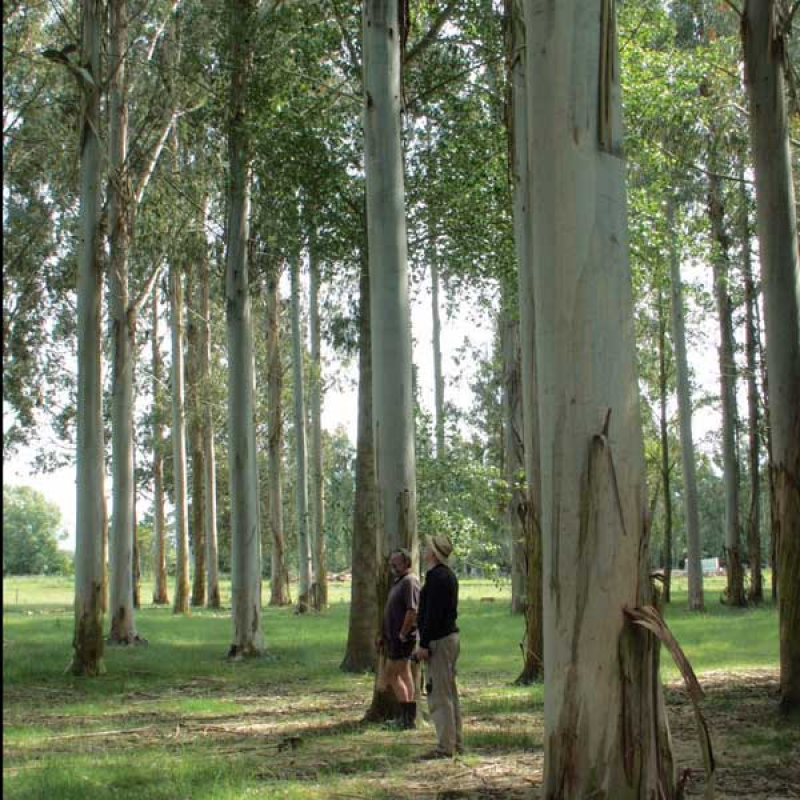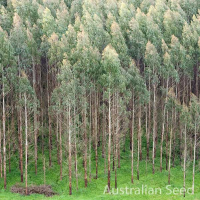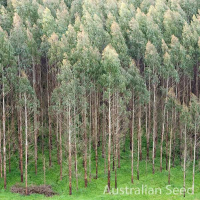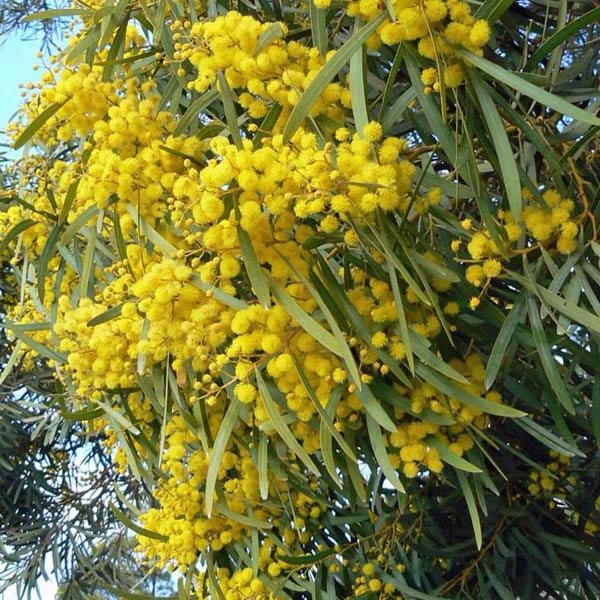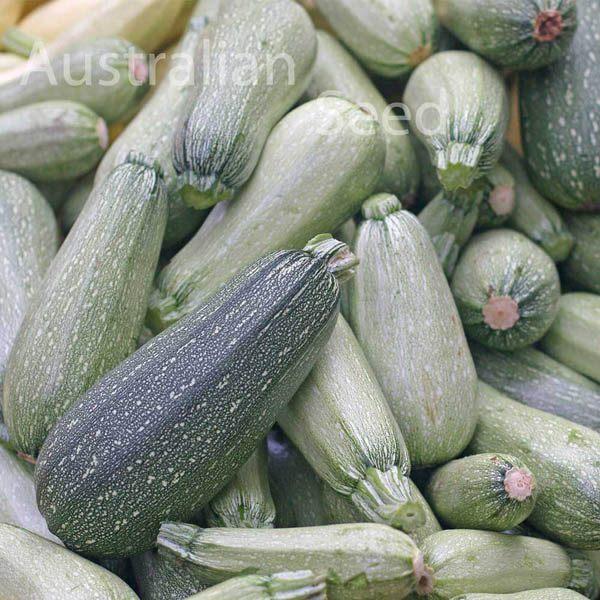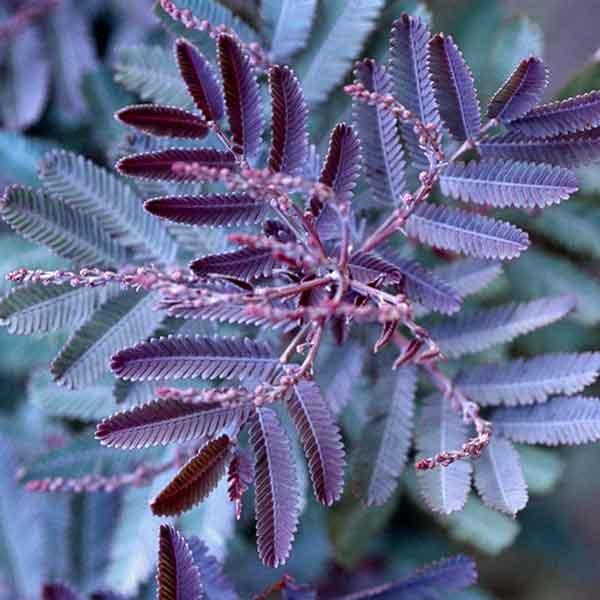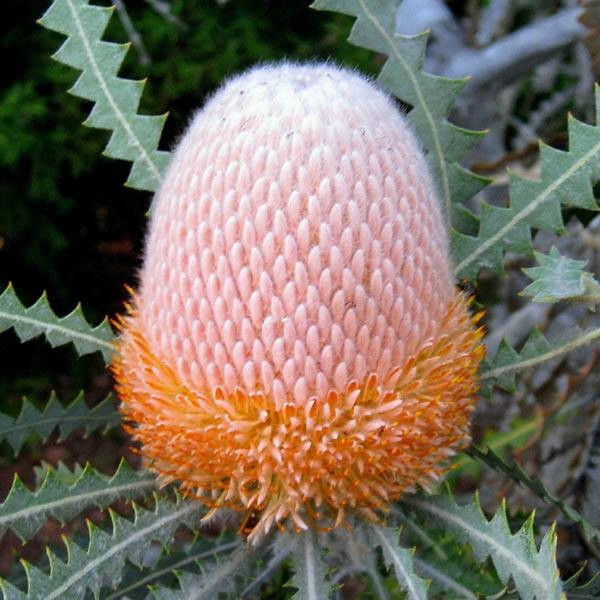We ship Internationally and Australia wide | Phytosanitary Certificates available for international orders.
Tall erect stout forest tree growing to 60 m occasionally growing to 90 m with smooth creamy grey bark. Fibrous grey-brown bark is persistent on lower trunk and smooth white-grey above, shedding in long ribbons.
The juvenile leaves are opposite, ovate to elliptic, and the adult leaves narrow-lanceolate 15–25 cm long.
Club shaped yellowish flower buds occur in clusters of 4-8 before opening to reveal white flowers in summer and autumn.
Commonly grown for timber in areas of high rainfall.
Occurs naturally in Eastern Victoria and South Eastern New South Wales.
Adaptable to a range of soils but prefers a light to medium moist soil in an open sunny position. Frost resistant but drought tender especially when young.
Grow notes:
Eucalypt's germinate readily from seed and are generally considered one of the easiest natives to grow from seed.
Depending on the species Eucalyptus seed comes in various sizes from very fine to several millimetres long.
As a rule of thumb seed that is fine should be sown on the surface of a porous mix and not buried. Seed 1 to 2 mm in diameter can be covered very lightly and seed from 2 mm up can be sown to a depth of the seed width.
Cold stratification of 28 days is recommended for this Eucalypt. Cold treatment is not critical for germination to occur but should give increased germination rates.
This is cool mountain species of Eucalypt that in its native range has a cold winter prior to germinating in spring. This can be replicated by cold stratification in the refrigerator for 28 days. Alternatively over wintering in the garden in cold climates will assist germination.
Although seed can be sown most of the year in many parts of Australia seed is generally best sown in spring or autumn in temperate climates, avoid the coldest and hottest months of the year. The optimum germination temperature for germination is around 16-22°C
- Sow seed on surface of a porous seed raising mix. The seed will lodge in the the pores of the mix once watered.
- Sprinkle a very light covering of the seed raising mix over the seed if required to hold the seed in place. Do not bury seed deeply.
- Water with fine mist spray to avoid disturbance of the seed.
- Ensure the mix is moist but not water logged.
- Place the container in plastic bag.
- Place the bagged container in the refrigerator for 28-42 days.
- Germination generally occurs in 10-28 days when moved to warmer temperatures after the period of cold treatment.
General note: Seeds of many natives are dormant and require specific conditions or pre-treatment for germination.
Do not be too hasty to discard seed that does not germinate, seeds will often lay dormant until the conditions are similar to their natural requirements for germination to occur. Containers put to one side will often surprise long after they were discarded.
Best sown in spring or autumn in temperate climates, avoid the coldest and hottest months of the year. The optimum temperature for germination is around 18-22°C
Sow seed in a seed-raising mix just below the surface.
Water with a fine mist spray to avoid disturbance of the seed.
Germination generally occurs in around 10-28 days.
Please note:
These growth notes are provided as guidance only and do not guarantee successful germination.
If you are uncertain about the requirements for importing seeds into your country, do not hesitate to contact our Export Manager at Australian Seed.
Being a registered Export Establishment, we have an officer who can help you obtain Phytosanitary certificates if needed.
It is important to note that the buyer is responsible for clearing the goods through customs and paying all associated charges, including import fees and taxes. Please note that we cannot accept returns due to Australian quarantine restrictions.
You can find the complete International terms and conditions by clicking on this link
At Australian Seed, we take pride in our extensive network of trusted suppliers and collectors who work with us to provide you with an unmatched selection of top-quality products.
Whether you are searching for a specific item or need to make a bulk purchase, our team is here to help. Our dedicated customer service representatives can guide you through our vast inventory and assist you in finding exactly what you need.
We are committed to providing our customers with the highest level of service and support.
Please don't hesitate to contact us If you require any assistance. Please don't hesitate to contact us at Australian Seed

